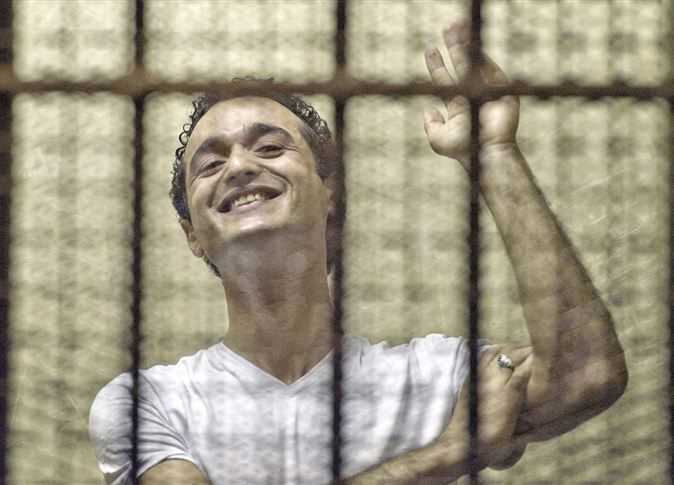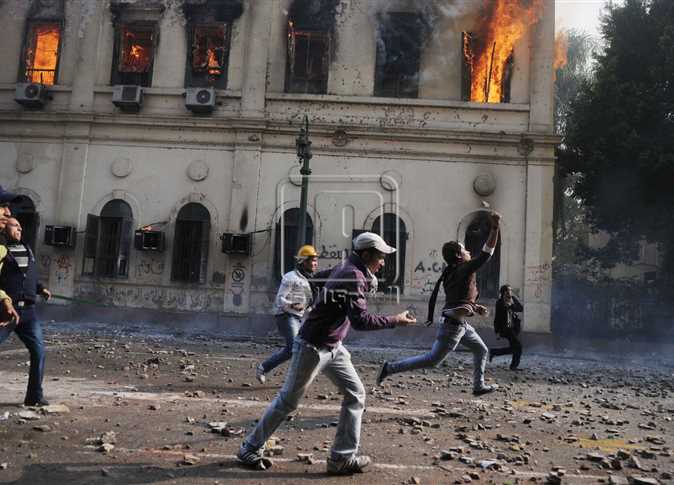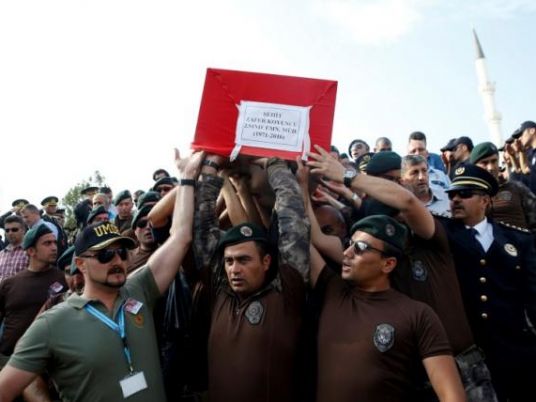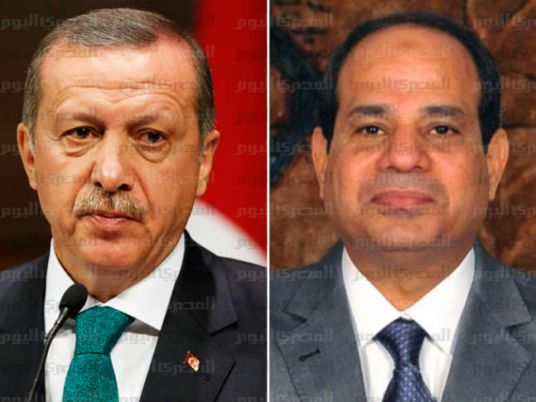The newly elected president of Egypt, Muslim Brotherhood candidate Mohamed Morsy, began his national address by thanking God and the families of the revolution’s martyrs for granting him such a victory, and immediately proceeded to deeply thank the armed forces. He saluted the Egyptian military and added, “Only God knows how much love I have in my heart [for it].”
There is a consensus in Egypt now that we live under military rule. Most observers believe the Supreme Council of the Armed Forces executed a military coup over the last two weeks through legal measures, and describe it as a “soft” coup that hardly relied on tanks and guns.
In February 2011, while the slogan of “The army and the people are one hand” was coined and disseminated, the SCAF established full control over the essential institutions of the state. The main pillars of a successful coup were all there: control over media, the bureaucracy, the security apparatus and the legal system.
However, the Egyptian coup seems hard to interpret. The intricate election of Morsy as a civilian president who does not belong to the coup plotters came as a surprise to many. As opposed to old-fashioned coups of the Cold War era, when the leaders of coups installed themselves as autocrats for life, the Egyptian coup allowed a civilian contestant to triumph over a fellow military candidate from the presidential race and assume power.
There is an interpretation for the above mystery. The Egyptian coup is not unique and is part of a new generation of world coup d’etats. In this latest style of coups, the military expresses sincere love for democracy and ballot boxes.
A recent study titled “Coups and Democracy” draws distinctions between old and new coups. During the 20th century, old-fashioned military coups were stigmatized as anti-democratic. Whether these coups were backed by the Soviet Union or the US, they usually installed their armed leaders as presidents — or dictators, rather — until they died or other coups removed them. From 1990 to today, a new generation of coups has emerged in the global scene, and recent putschists tend to stick to democracy, especially if they depend on substantial military aid from the US and need to please their patrons with some spectacle of free elections. New coups bring civilian presidents to power, but the armed forces reserve for themselves the upper hand in state affairs.
A coup d’etat usually takes place in a country that suffers from an economic crisis, has oppositional groups that are fragmented and not homogenous, and has a weak civil society in comparison to a strong military institution. In a unipolar global system in which the US is the only hegemonic power and benevolent patron of third-world regimes, adhering to the American rhetoric on democracy — or the Bush Doctrine of the 2000s — is essential to the survival of any coup. Federal law in the US prohibits granting any financial assistance “to the government of any country whose duly elected head of government is deposed by military coup or decree.” Thus, to hold elections and follow the path of ballot boxes becomes the only way through which coup leaders can secure the flow of US foreign aid.
The Egyptian case is a conspicuous example of the new generation of world coups. Last year, the armed putschists capitalized on the mass protests to finally get rid of Hosni Mubarak’s son Gamal, whose succession scheme threatened their economic empire and political interests. After overthrowing Mubarak, the SCAF immediately adopted a democratic discourse and held elections to meet the expectations of the US, which grants the Egyptian army US$1.3 billion in annual aid.
Morsy is an elected son of the coup. He is the civilian president that the military council allowed to rise to power, but only after issuing a supplement to the Constitutional Declaration that deprives him of any substantial authority over the armed forces. Morsy will inherit a highly militarized state where retired army generals and colonels occupy almost every high-ranking position in the bureaucracy and the public sector. This is in addition to the fact that the military runs massive economic enterprises.
Despite the fact that the militarization of the state is a huge hurdle to any civilian president who aspires for real reform, it is significant that Morsy began his first speech by expressing his deep love for the military institution. Morsy showed no intentions during his campaign to demilitarize the state.
The US had a big role to play in pressuring the military to honor Morsy’s win. A report published by Al-Watan daily newspaper said US officials met with SCAF members to press the latter to announce the valid results of the election and accept Morsy’s victory. Before that, and over the course of many months or even years, the US had numerous talks with Muslim Brotherhood leaders in Cairo and Washington, where the Brothers always emphasized their choice of market economy policies as well as their adherence to international agreements.
Even though Egypt has elected its first civilian president since its independence, it remains a bittersweet victory. This is not only because there is a public mistrust of the Muslim Brotherhood, but, more importantly, because Morsy’s presidency is characteristic of a new generation of military coups. The SCAF celebrates free elections only to be allowed to tighten its grip on power while securing its indispensable American funding.
Zeinab Abul-Magd is a historian. She teaches at the American University in Cairo.




